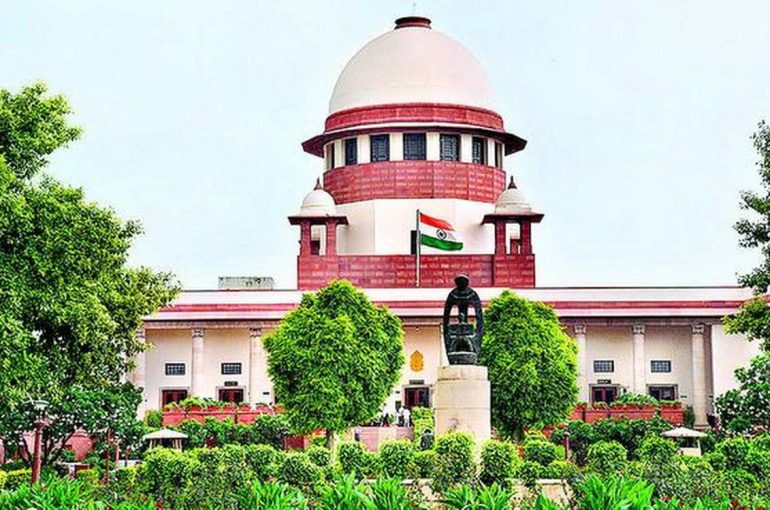THE FINALITY OF CRIMINAL ORDERS: POLICING THE POWER OF REVIEW

INTRODUCTION
This article provides an analysis of the landmark Judgment passed by the Supreme Court of India in State of Rajasthan v. Parmeshwar Ramlal Joshi and Others. The Judgment, bearing the citation SLP (Crl.) No (s). 2797-2798 of 2025), was delivered on October 08, 2025. The Bench, comprising Justice Vikram Nath and Justice Sandeep Mehta, addressed the crucial question of a High Court’s jurisdiction to recall its own reasoned order in criminal proceedings under the guise of correcting a clerical mistake. The Court ultimately held that the inherent powers cannot be utilized to circumvent the statutory bar on review.
BRIEF FACTS
The dispute originated from the registration of two First Information Reports (FIRs), No. 202 of 2024 and No. 234 of 2024, at P.S. Kareda, Bhilwara, following applications filed by the Respondent-Complainant, Parmeshwar Ramlal Joshi, whose business involved granite mining. The Complainant alleged that the local police investigation was unfair due to the influence of one of the accused, a former Revenue Minister.
Seeking a fair investigation, the Complainant filed a Criminal Writ Petition with an identical prayer for transfer of the investigation to the Central Bureau of Investigation (CBI), but this petition was dismissed as withdrawn on October 23, 2024, without liberty to file a fresh petition.
Subsequently, the Complainant filed a second petition (S.B. Criminal Misc. (Pet.) No. 287 of 2025) under Section 528 of the Bharatiya Nagarika Suraksha Sanhita (BNSS) [Section 482 CrPC] with almost the same prayers. The High Court, in its initial Order dated January 16, 2025, disposed of this petition, choosing not to transfer the investigation to the CBI, but instead advising the Complainant to approach the Superintendent of Police for a fair inquiry.
However, on an application for modification, the High Court passed a second Order on January 24, 2025, recalling its reasoned Order of January 16, 2025, and restoring the petition, labelling the original Order as an “inadvertent, a clerical mistake”. Finally, on February 4, 2025, the High Court allowed the restored petition and directed the transfer of the investigation to the CBI. The State of Rajasthan challenged the orders of January 24, 2025, and February 4, 2025, before the Supreme Court.
ISSUE OF LAW
The principal issue before the Supreme Court was whether the High Court, acting under its inherent jurisdiction (Section 528 BNSS / Section 482 CrPC) or powers of correction (Section 403 BNSS / Section 362 CrPC), could:
- Recall and effectively review its own reasoned order dated January 16, 2025, by characterizing the non-grant of relief as a “clerical mistake”.
- Entertain a second miscellaneous petition for the same relief (CBI transfer) when an earlier petition containing identical prayers had already been dismissed as withdrawn without liberty.
ANALYSIS
The Supreme Court undertook a meticulous examination of the High Court’s actions, finding that the impugned orders were unsustainable in law.
- The Statutory Bar on Review
The Court firmly established that the law is well-settled: a criminal court has no power to recall or review its own judgment. The only permissible action is to correct or rectify clerical errors under Section 403 BNSS (Section 362 CrPC). Citing Simrikhia v. Dolley Mukherjee (1990) 2 SCC 437, the Court reinforced that the High Court’s inherent jurisdiction (Section 528 BNSS / Section 482 CrPC) cannot be invoked to override the bar of review or to do what is specifically prohibited by the Code.
- Mischaracterisation of the Order
The Court scrutinised the Order of January 16, 2025, and concluded it was a reasoned order that had considered the prayer for transfer but was simply not persuaded to accept it. The Court pointed out that the order did not suffer from any clerical error or inadvertent mistake that would justify its recall. The subsequent application for “modification/correction” was, in substance, a claim for review of the earlier decision, plain and simple, a fact the complainant failed to even mask in the application. The High Court, therefore, acted without jurisdiction in recalling and reviewing its own reasoned order.
- Successive Petitions for Identical Relief
The Court further held that the second petition (S.B. Criminal Misc. (Pet.) No. 287 of 2025) should not have been entertained since the earlier writ petition with identical prayers had been dismissed as withdrawn without liberty. The attempt to file the second petition was described as “nothing but a change in the label of the petition with the substance being the same“. Once the first petition was dismissed, the only remedy available was to challenge that Dismissal Order as per law.
CONCLUSION
The Supreme Court allowed the Appeal and quashed the High Court’s Orders dated January 24, 2025, and February 4, 2025, finding them to be without jurisdiction and unsustainable in law. The Judgment reinforces the finality of criminal proceedings and cautions against the use of inherent powers to review concluded matters, particularly when the original relief was intentionally denied by a reasoned order. However, considering the gravity of the original allegations, the Supreme Court granted the Complainant liberty to take recourse to the suitable remedy for challenging the original non-transfer orders as per law.
SARTHAK KALRA
Senior Legal Associate
The Indian Lawyer & Allied Services
Please log on to our YouTube channel, The Indian Lawyer Legal Tips, to learn about various aspects of the law. Our latest video, titled “Legal Requirements for Indian Startups| Complete Q &A 2025 | Advocate Sushila Ram Varma”
https://www.youtube.com/watch?v=DCwYi1P-1xE&t=39s





































Leave a Reply